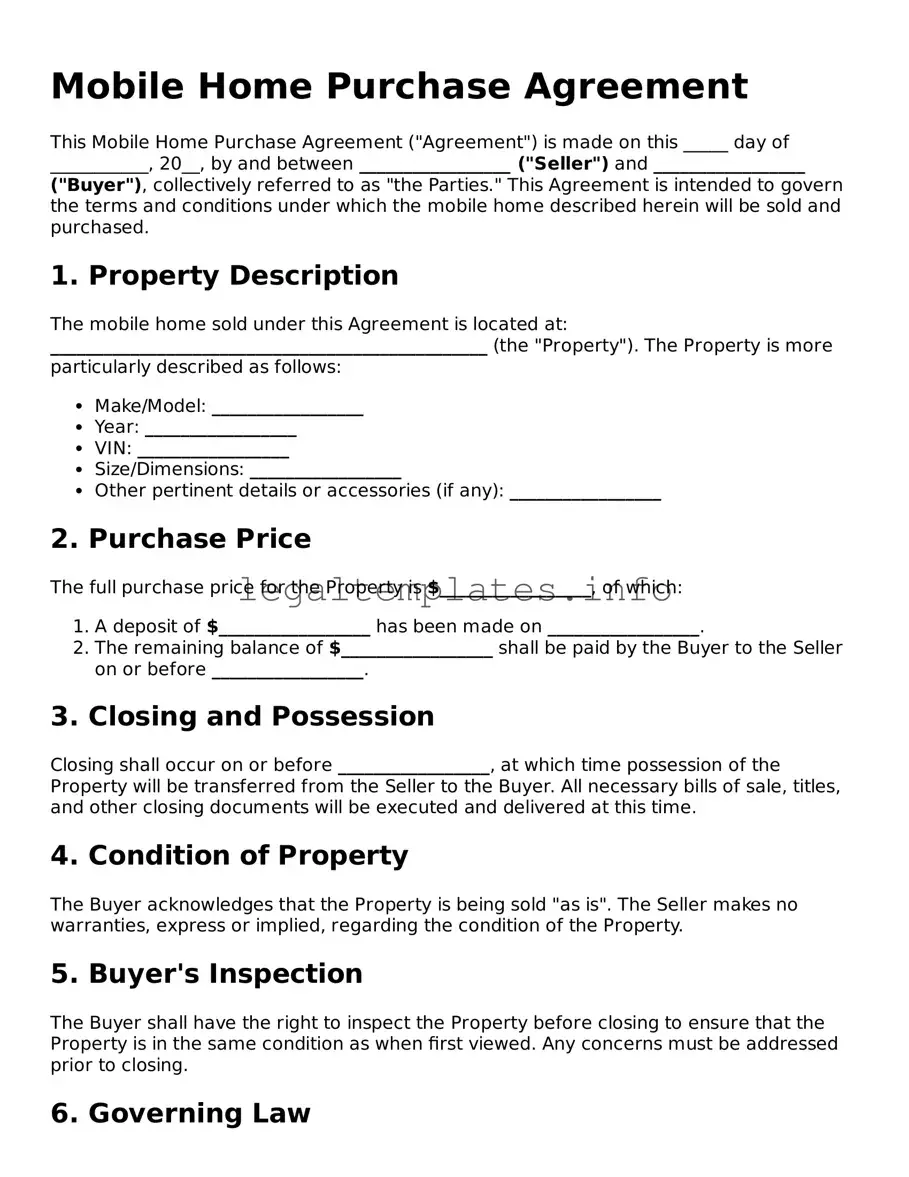Mobile Home Purchase Agreement
This Mobile Home Purchase Agreement ("Agreement") is made on this _____ day of ___________, 20__, by and between _________________ ("Seller") and _________________ ("Buyer"), collectively referred to as "the Parties." This Agreement is intended to govern the terms and conditions under which the mobile home described herein will be sold and purchased.
1. Property Description
The mobile home sold under this Agreement is located at: _________________________________________________ (the "Property"). The Property is more particularly described as follows:
- Make/Model: _________________
- Year: _________________
- VIN: _________________
- Size/Dimensions: _________________
- Other pertinent details or accessories (if any): _________________
2. Purchase Price
The full purchase price for the Property is $_________________, of which:
- A deposit of $_________________ has been made on _________________.
- The remaining balance of $_________________ shall be paid by the Buyer to the Seller on or before _________________.
3. Closing and Possession
Closing shall occur on or before _________________, at which time possession of the Property will be transferred from the Seller to the Buyer. All necessary bills of sale, titles, and other closing documents will be executed and delivered at this time.
4. Condition of Property
The Buyer acknowledges that the Property is being sold "as is". The Seller makes no warranties, express or implied, regarding the condition of the Property.
5. Buyer's Inspection
The Buyer shall have the right to inspect the Property before closing to ensure that the Property is in the same condition as when first viewed. Any concerns must be addressed prior to closing.
6. Governing Law
This Agreement shall be governed by and construed in accordance with the laws of the State of _________________.
7. Dispute Resolution
Any disputes arising under or related to this Agreement shall be resolved through mediation before resorting to arbitration or litigation.
8. Amendments
Any amendments to this Agreement must be made in writing and signed by both parties.
9. Notices
All notices, requests, demands, and other communications under this Agreement shall be in writing and shall be deemed to have been duly given on the date of service if served personally on the party to whom notice is to be given, or on the third day after mailing, if mailed to the party to whom notice is to be given, at the address listed below:
For Seller: _________________
For Buyer: _________________
10. Entire Agreement
This Agreement constitutes the entire Agreement between the parties and supersedes any prior understanding or representation of any kind preceding the date of this Agreement. There are no other promises, conditions, understanding or other agreements, whether oral or written, relating to the subject matter of this Agreement.
This Agreement has been executed on the dates indicated below by the Parties, who hereby acknowledge and agree to all terms and conditions contained herein.
__________________________________
Seller's Signature & Date
__________________________________
Buyer's Signature & Date

